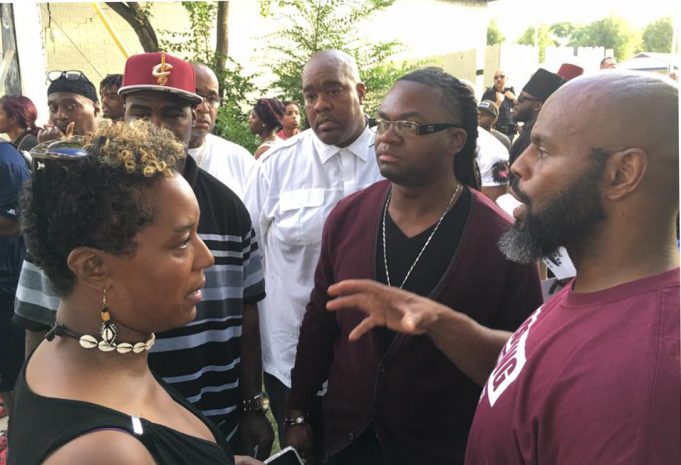Milwaukee is on fire in more ways than one.
Gone are the days of Laverne and Shirley or “The Fonz.”
The flames that burned in Milwaukee last weekend after an officer-involved shooting death have been slowly burning for generations. Our problems run deep and cannot be solved in one 30 minute television sitcom.
Unfortunately, the national media focused on the details of the officer-involved shooting death of Sylville Smith as the cause of the people’s discontent. That’s like missing the forest by looking at just one tree. Saturday’s shooting was just one piece of kindling out of millions. The embers of the fire of Milwaukee’s racial divide have been burning for generations.
Milwaukee’s black community has been plagued with trauma caused by rampant poverty, poor educational outcomes, poor health and high incarceration rates.
Milwaukee’s national reputation rests on the Milwaukee Brewers, Milwaukee Bucks or our great festivals. What people don’t see is the trauma created by decades of violent crime, murders and mass incarceration.
Last Saturday’s tragic officer-involved shooting sparked a protest that led to several businesses and cars being burned to the ground. What far too many in the national media missed before their news trucks pulled out of town was why the match was lit in the first place.
Our city’s sad legacy is that Milwaukee is the most racially segregated metropolitan area in America. Wisconsin is the worst state in the nation to raise a black child. With four out of five black children living in poverty, it’s no wonder that more than 84 percent of Milwaukee’s school children read below grade level or that we suspend and expel a higher proportion of black children than white children. We also graduate fewer black students than white students and our teen birthrate is far too high. Those who overcome the odds and graduate high school face a job market where employers would rather hire a white felon than a black non-felon.
These terrible outcomes lead to hopelessness. Reverend Jesse Jackson preaches that we must keep hope alive. Sadly, hope left Milwaukee long before they canceled Happy Days. The headline of the Milwaukee Journal from more than 40 years ago read, “City closed off after negro rioting.” Things haven’t changed, but they need to. Reverend Jackson is right in that hope is critical.
One thing I know for sure is that we cannot police our way out of hopelessness. If we could, we’d have done it already. Wisconsin incarcerates more black people than any state in the nation. The zip code I live in is the most incarcerated in the nation. Find a black man on the streets of zip code 53206 and there’s a higher likelihood he’s been to prison than not.
Decade after decade, this hopelessness is caused by trauma. Whether it’s being discriminated against by a teacher, racially profiled by law enforcement or denied a family-supporting job because of your race, each and every one of us have experienced more trauma in our lifetime than anyone should experience in a week. As a little girl, I watched my momma shoot a home invader, and then we took him to the hospital. We also had someone try to carjack us. In Milwaukee, you are about five times more likely to be a victim of a violent crime than the rest of Wisconsin. That kind of trauma sticks with you for life.
I don’t for one minute condone burning cars or businesses. I think there’s a better way to make your voice heard. But after living my entire life in a pressure cooker of trauma, I don’t have to ask why the fire burned, I just ask what we’re going to do about ending the segregation, the racism and the trauma?
Stay tuned next week when I will introduce you to my LOVE & FAITH initiative, which recognizes the violence in Milwaukee is a public health crisis that needs to be treated by breaking down the silos of government and partnering with industry to create jobs and eliminate poverty and hopelessness.
If you have an idea for a policy that will help restore hope in Milwaukee, email [email protected]. You can also connect with Senator Lena C. Taylor on social media on Facebook.com/SenLenaTaylor, Twitter.com/SenTaylor or follow her at Instagram.com/Lena.Taylor.










